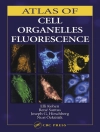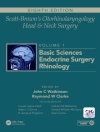PET-CT is increasingly being employed in the diagnosis of both oncological and non-oncological patients, yet nuclear medicine physicians may have only limited practical experience of rare diseases and may experience difficulty in recognizing and interpreting rare findings. This unique atlas documents a large number of clinical cases that will help practitioners to identify findings and diseases that, though rare, are sufficiently frequent to be encountered in routine practice. Two types of cases are presented: patients evaluated for rare diseases and patients evaluated for standard diseases in whom atypical PET findings were detected. Each reported case includes a brief description of the clinical history, representative color PET-CT images obtained using FDG or other tracers, and a short explanation of the disease and findings. This atlas will enable practitioners to make conclusive reports of PET-CT scans that would otherwise have been inconclusive.
Innehållsförteckning
From the contents: Part 1: FDG: Rare Diseases: Giant cell tumor (GCT).- Pulmonary amylodosis.- Pneumoconiosis.- Pulmonary aspergillosis.- Pulmonary scar cancer.- HIV-related pneumonia.- Pulmonary sarcoidosis.- Varicella pneumonia.- Castleman disease.- Perivalvular abscess.- Hepatic abscess.- Pediatric hepatic hilar abscess.- Basal-cell carcinoma.- Graves-Basedow disease.- Erysipelas.- Initial stage discitis.- Erdheim-Chester disease.- Necrotizing fasciitis.- Vaquez disease.- Peritoneal catheter infection .- Implantable cardiac device infection .- Thoracic aortic graft infection.- Rheumatoid arthritis.- Idiopathic mediastinal fibrosis.- Spinal disc herniation.- Mesenteritis.- Osteomyelitis of the foot.- Peritoneal mesothelioma.- Lymphoma of the brain.- Osteomyelitis of the sternum.- Paget’s disease.- Post surgical bone infection.- Pigmented villonodular synovitis.












